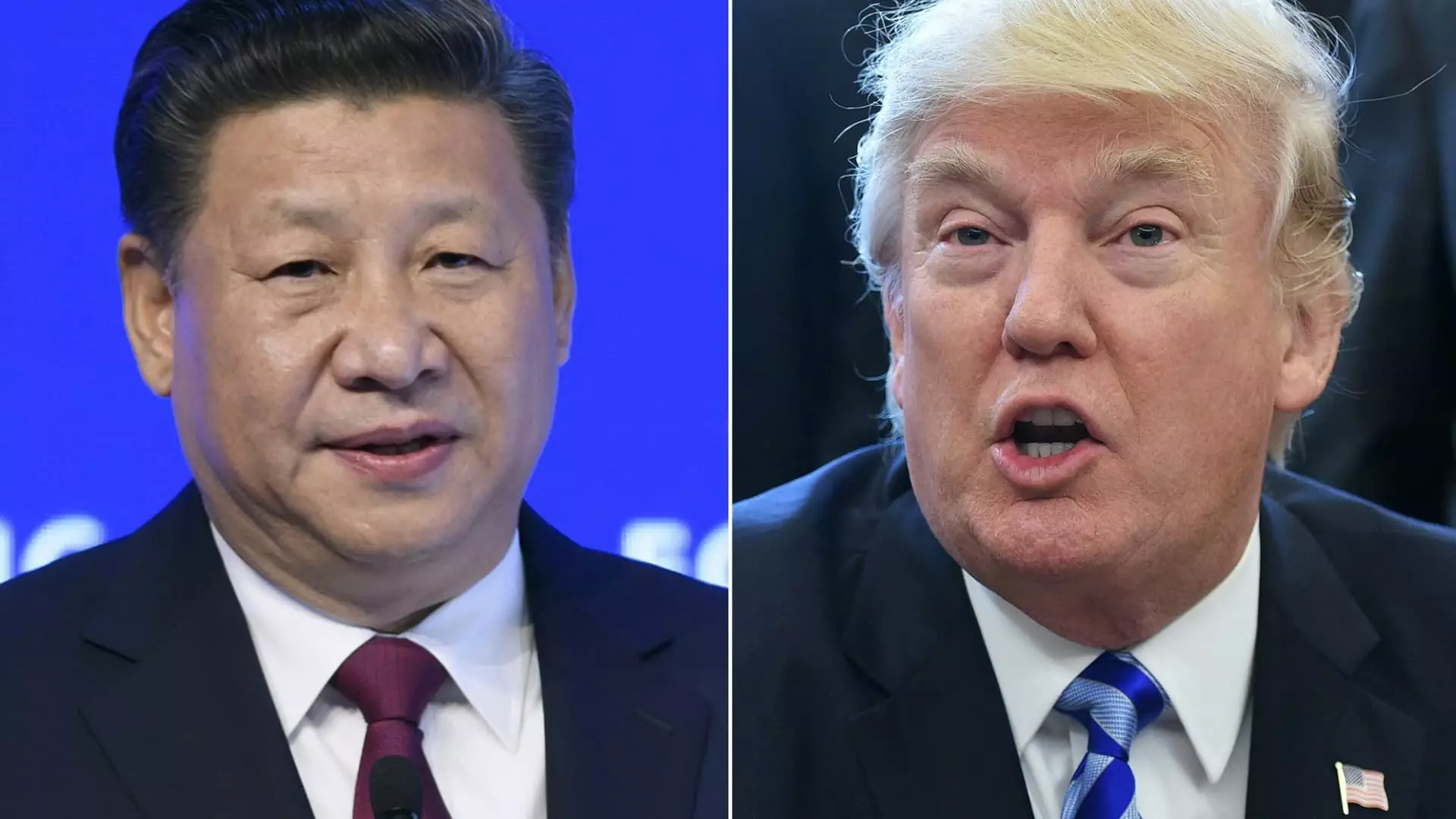In an explosive declaration, former President Donald Trump announced that China had blatantly “totally violated” a preliminary trade agreement, igniting fears of renewed economic strife between two of the world’s largest economies. Trump’s rhetoric, famously punctuated with outlandish claims and hyperbolic expressions, mirrored the sentiments of many who followed the tangled web of U.S.-China trade relations. Wall Street reacted predictively, with stock futures dropping following the president’s scathing remarks. This immediate financial fallout underscored a fundamental reality: Trump’s approach has often been more about theater than strategy.
Echoes of Concern
Trump’s tirade was not an isolated incident but echoed through official channels, with U.S. Trade Representative Jamieson Greer joining the chorus of alarm about China’s complicit role in the ongoing trade saga. His assertion that “the Chinese are slow rolling their compliance” is likely to resonate not only with the Trump base but also with a wide audience anxious about the impacts of globalization. Such frustrations highlight a broader issue—American workers historically feel left behind in the face of a relentless march toward global trade, and any perceived betrayal has the power to deepen divisions within society and politics.
Meanwhile, Treasury Secretary Scott Bessent added that trade talks with China were “stalled,” suggesting that the very principles of negotiation that are supposed to underpin international diplomacy were lacking. It poses a daunting question: Could America navigate the tumultuous waters of global commerce without a clear and coherent strategy?
Trump the Diplomat?
Trump’s self-proclaimed role as a savior for the Chinese economy is both ironic and troubling. He claimed to have played a significant role in preventing “grave economic danger” for China. But this narrative ignores the realities faced by American workers who have borne the brunt of unfair competition. By attempting to stem China’s economic downturn out of a sense of empathy—rather than focusing on restoring and fortifying American industries—Trump’s method reveals a fundamental misunderstanding of the delicate balance in trade negotiations.
Rhetorically, Trump oscillates between defiance (“So much for being Mr. NICE GUY!”) and paternalism, viewing international dealings through a lens of bravado, while possibly undermining the core issue at hand: fairness in trade practices that respects and uplifts American manufacturing and labor.
Economic Fallout and Public Sentiment
Trump’s policies have often promised economic resurgence, with rhetoric indicating a major payoff for American workers. However, the real-world fallout tells a starkly different story. The “cold turkey” approach to China may have been intended to drag Beijing into compliance, yet it simultaneously alienated allies and highlighted cracks in the U.S. economy.
The “civil unrest” Trump hinted at reflects a deeper discontent in a nation still reeling from job losses and stagnating wages. When ordinary citizens see tariffs and trade wars as mere chess moves on a global board, they fail to recognize the nuanced impacts these decisions have on their lives. The political ramifications of such disconnection could spell doom for both parties, as increasingly polarized factions jockey for influence.
The TACO Trade Dilemma
The emergence of terms like “TACO trade” speaks volumes about public perception of Trump’s trade strategies. It signals a growing cynicism regarding the administration’s consistency in policy execution and suggests that traders and investors have developed a somewhat morbid predictability about Trump’s volatility in the economic arena. This cycle—news of tariffs triggering market dips followed by Trump ‘chickening out’ and rolling back decisions—a possible blueprint for opportunism, reveals a chaotic and reactionary environment among investors.
Such patterns create uncertainty and instability, which are detrimental to a healthy economy. The American ethos prizes resilience through steady and strategic governance. Yet, under Trump’s tenure, the very structure supporting economic growth feels more like a house of cards precariously balanced on whims.
The path forward in U.S.-China relations requires a nuanced understanding that transcends bombastic declarations and knee-jerk reactions. As history has shown, dialogue tempered by accountability often yields greater dividends than bravado and bluster. If the United States is to recover its standing as a leader in fair trade practices, it will require a concerted effort to not only engage other nations but to foster a domestic environment ripe for sustainable growth.


Leave a Reply